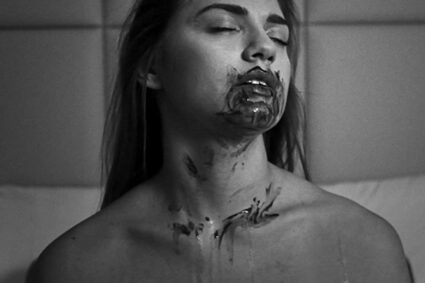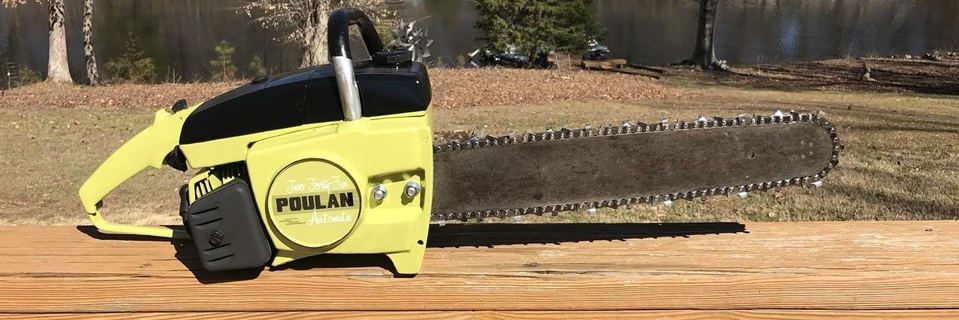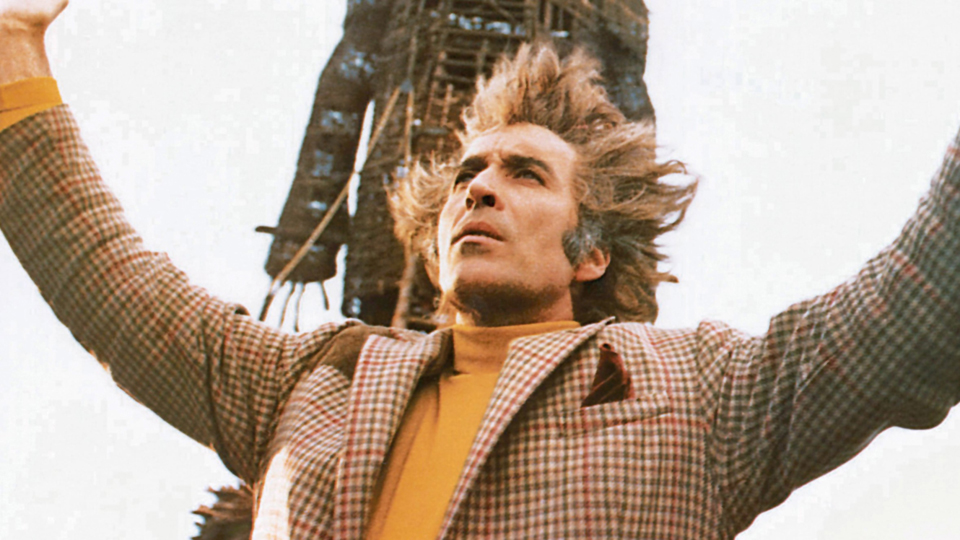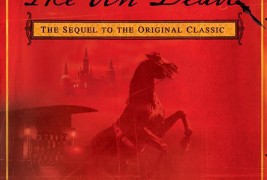
The story of Bram Stoker has been shrouded in vague facts and assumptions to this day, over one-hundred years after the release of his seminal novel, Dracula.
A classic not only within the horror genre but also in literature as a whole, Dracula is arguably one of the most important novels in the history of the written word. Yet, unless you’re a scholar or an exceptionally determined fan of the man, Stoker’s name only conjures up images of bats and caped Transylvanians even though he wrote dozens of novels, short stories and essays throughout his well-respected career as a journalist and an author.
Figures like Stoker deserve to be preserved in the conscience of literature, which makes it so important for historical societies and official researchers to do everything they can to keep the original names of horror relevant. This is only made so much more difficult in the modern day when books are looked at with distaste by a majority of younger generations and everyone would rather Google a fact than actually investigate for the truth themselves.
Enter Dacre Stoker, the great-grandnephew of Mr. Bram Stoker. Dacre has enjoyed an illustrious life as an Olympic athlete and coach, as well as a well-regarded teacher. Dacre has more recently championed the legacy of his world-renowned relative and has been the leading man of Stoker history for nearly a decade now.
Whether he’s presenting seminars and conferences about the origins of the vampire mythos or traveling the world to view the historic landmarks made famous by his ancestry, Dacre has fully committed himself to the cause. Having written the official sequel to Dracula with 2009’s Dracula: The Undead and co-written the first Dracula play to be authenticated by the Bram Stoker Estate since the original 1931 version, Stoker is a man on a mission and he doesn’t appear ready to slow down anytime soon.
Dacre is a true encyclopedia of vampires and it’s simply amazing what all he has done with his life. It’s also great to know that such a hallowed work of literature and the author behind the book’s dignity is in such safe and respectful hands.
I had the absolute pleasure of speaking with Dacre recently about his life, his famous ancestor and the ever-evolving popularity of vampires in modern culture.
Ravenous Monster: Dacre, please tell us a little about yourself.
Dacre Stoker: I’m a very normal person. I’ve been a schoolteacher for most of my life. I have not really been a real horror guy until I got into Dracula: The Undead. Most of my life has been sports, outdoor adventures. I just decided, in 2003, it was time to dig into Bram’s life and clear the air. There are a lot of misconceptions about Bram and his life before and after Dracula. So many others were writing their own biographies on him and I thought ‘enough of this’ and the rest was sort of history. I do a lot of reading and go to a lot of conferences. I dig as deep as I can into things, make connections and I learn things all the time myself.
RavMon: Were you a horror fan growing up?
DS: It’s funny; people always want to know, ‘What was it like growing up a Stoker?’ And I certainly wasn’t running around like a little goth or anything, but I did enjoy The Munsters and The Addams Family. When I was a little older, I got into Dark Shadows and Night Gallery, but at the same time, I was playing hockey, soccer and riding horses, so horror didn’t dominate my life but it was something I did enjoy.
A funny little note I always like to share is that when Halloween came around, as a kid I began to resent it a little bit because my friends would poke fun at me. Like, ‘Oh, it’s your family’s big celebration. What happens if we come to your house?’ So as a child, you know, anything that gives people ammunition to joke at you, they take it. So it wasn’t like I hated it, but it wasn’t like I was super excited about Halloween like the other kids because my thinking was, ‘Oh God, I’ve got to listen to all the jokes again (laughs)!’
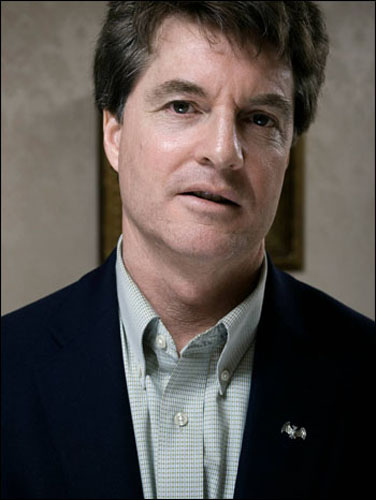
RavMon: You touched on your career as an athlete. You’ve achieved enormous success in the Pentathlon, both as an individual and as a coach.
DS: I did it myself from 1977 to 1983 and got really close to going to the Olympics. I qualified for the Canadian team in 1980, the year of the boycott. So that sort of sucked. Then I got a job as a teacher and couldn’t keep my training up, so I got into the coaching world. I coached the Canadian ladies’ team for a few years and we won a world championship and then I got the men’s team job in the 1988 Olympics in Seoul. I had the chance to meet a lot of cool people and got great experience. There were some horror stories involved in there from time to time, though (laughs).
RavMon: Having done so much research on Bram and probably having learned some really interesting tidbits about your relative, what is one thing that has stuck with you in particular about him?
DS: You know, I believe that sports—whether as an athlete or a coach—gives you a drive that can help you maintain a level of dedication and perseverance throughout your life. Bram was like that, too. He was an athlete too. He recovered from his childhood illness and was very self-conscious. He really shined as an athlete in his teenage years and when he was at university and I believe that spurned on his confidence. That, I think, brought him into things like the historical society, philosophical society. Then [he] moved on to this more creative side—theatrics and creative writing—and he left sports behind. Sports are a big part of who I am and I think that really helps give me that drive to finish something to the end. There’s no doubt in my mind Bram was the same way.
RavMon: Over the last few years, there has been a lot more focus on Bram Stoker as an all-around author and creative mind as opposed to just the guy who did Dracula. It’s really nice to see him being celebrated for the talent he is, without taking anything away from Dracula, obviously.
DS: Yeah, I’m glad you brought that up. It is very rewarding. We’re pushing that wheelbarrow up the hill. My wife and I actually started the BramStokerEstate.com website, which we are proud of. You know, our cousins in England realized they really aren’t into this stuff, but they realized that it needs to be somebody’s thing in the family and to keep moving and uncovering it all. There’s a good young guy who’s a professor up at Buffalo, John Browning, and he did two really significant things to help this train move along and one thing was he dug, better than I ever dug, and found about seventy reviews of Dracula that most people never even knew existed before the internet age. There is this statement that used to kind of drive me crazy—‘Dracula was met with mixed reviews when Bram was alive.’
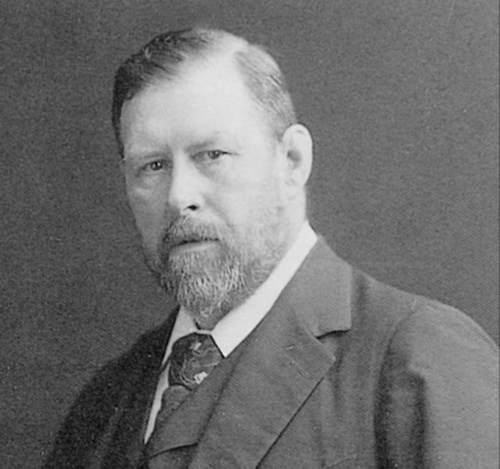
Well, when John Browning was able to acquire these reviews from America, England, Canada, Australia and New Zealand, it was like, ‘well wait a sec, what do you mean mixed reviews?’ He found three reviews that were fifty-fifty between negative and positive, two that were negative and over sixty that were highly positive. So how could you say ‘mixed reviews’? Well, what he realized was the reviews that the journalists and biographers referred to at the time were only about six that they cared to look at or really look for. So, of the six, when two of them were negative and only one was really positive while the others were fifty-fifty, of course they were mixed reviews because those writers didn’t dig deeper so they could balance it. To me, that’s really significant. You know, people paint this picture of ‘poor old Bram Stoker’ who died before ever seeing anything on stage or certainly on screen, so he never had a chance to see it become successful. But I believe he did. I believe being the theatrical man that he was and being a writer himself, I know darn well he would have had access to as many reviews as he possibly could have gotten his hands on. I’m sure he had a pretty good idea that the book had some detractors because it was cutting edge and shocking, but at the same time, there were a lot of reviewers that he knew he had touched a nerve with and done something groundbreaking in the horror genre. So, I’m really pleased—with this day and age of technology—that people are able to dig deeper and also find the other works that Bram had done.
John also wrote The Forgotten Writings of Bram Stoker, which I think you alluded to, and he found short stories in different places in the world through the internet and his connections throughout institutions and schools around the world and he found some really cool stories. They show that Bram was really socially conscious—concerned about class systems and the British, essentially the occupation of Ireland, so he wasn’t just a horror guy. He was very aware of science and technology and the advances that were being made, some of that comes out in Dracula. So he was a really well-rounded guy and it’s people like John Browning and a lot of other folks who are still digging up essential things to show that Bram isn’t just Dracula.
RavMon: Why do you feel Dracula still resonates to this day, both as a novel and as a character?
DS: Well, vampires in popular culture have gone through some ups and downs. I refer to another really good study that John Browning did called ‘Dracula In Visual Media’. We actually did a presentation at the New York Comic-Con and we pulled up some graphs and it’s interesting to see what it shows. In the thirties and forties, when the movies were just becoming really popular and Dracula was actually the first horror talkie, up through the Hammer films of the sixties and seventies, vampires were risqué. A lot of people saw it as almost softcore porn. It was very suggestive of sexuality and this was a socially accessible way for people to view this stuff, in the theatre—a bare neck, part of a breast, the whole idea of exchange of fluids—so that was sort of a high point. But it wasn’t too long after that that X-rated videos became popular and people didn’t need vampires for people to get their kicks that way. So vampires kind of tapered off. Then came Dark Shadows on television and Anne Rice and Stephen King, who brought them back into focus with their literature, and you started changing the way the vampire was depicted. It was good stuff—real stories and emotions.
You look at Interview with the Vampire, the difference between Lestat and Louie. Anne Rice started giving human qualities to the vampire which then took us off on another angle—vampires weren’t just killing machines, they now become almost human. What’s happening in the genre is that people—good directors and good writers—are constantly tweaking with the way the vampire comes across to the reader or the viewer, so you never get bored with that. And when you start getting bored, here comes Buffy, a cute girl who kicks ass (laughs). Fast forward to True Blood and Vampire Diaries, Twilight, where the vampires are hot people right off the runway and they have all their teenage social issues with little twists. There’s been role reversals, gender switch-ups, all this stuff that is very unique and different.
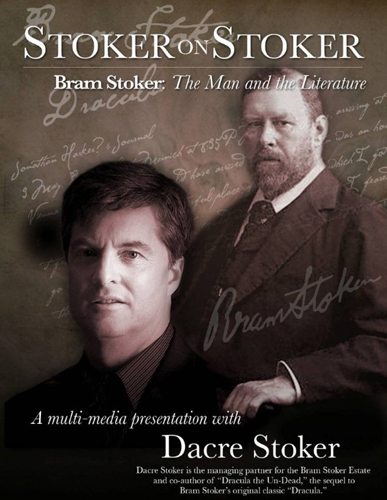
Thus, vampires never get stale because there are so many preconceived myths that can so easily be tweaked creatively. If you keep getting creative with it, they don’t go out of style. The final thing, really, is the one piece that I think still and will always be a major point of interest is the whole issue of immortality. As long as somebody doesn’t screw it up and make vampires mortal, we look at these characters and kind of have that little bug in the back of your head as you watch or read this and think, ‘That is really cool. What would it be like?’ Immortality has always fascinated humanity. My God, there are opportunities all over to keep vampires going and people do some really cool stuff with them. I think that’s pretty cool. And, of course, it all started with Dracula.
RavMon: Walking through that timeline, it really opens your eyes to the fact that the archetypes are always going to be there and keeping the respect and integrity of the theme is most important.
DS: Yeah, you are absolutely right. You can’t stray too far because there are hardcore people that will roast you, as some did to me and Ian when we did Dracula: The Undead. Even though we stayed true to the general idea and we did our historical research and it was written with the utmost respect and love for Bram and his story, people still didn’t want to see some of the things we’d done. They have their vision and heart for the Dracula Bram created and that will never change. Stoker’s story has impacted a lot of people and Dracula is still a very big part of the horror landscape.
RavMon: Bram is obviously still very much a part of the horror lore here in the States, but what is his reputation like back in Ireland?
DS: One of the things I’m very proud of is [that] our family helped stimulate Dublin, Ireland to actually create a Bram Stoker Halloween Festival in Dublin, his hometown. It was many years of gentle nudging and presentations to politicians over there to say, ‘you guys really got to recognize this guy in his hometown.’ It started in 2009 when they did celebrate, throughout the month of April, Bram Stoker’s Dracula and there were a bunch of events and such. It’s taken a while to get it going but this year was a two-day festival and the town committed to three more years of the festival, so that’s a nice accomplishment that I’m very proud of. I’m very dedicated to making sure Bram has a proper memorial and we are committed to having a statue made in Ireland for Bram. We’ve got most of the money raised and we are just waiting for the city council to approve a place to put it. We’re getting there.
RavMon: What really pushed you to write Dracula: The Undead?
DS: With media these days, especially the 1992 Francis Ford Coppola film. People these days don’t just see Dracula as this suave, debonair and mysterious being anymore. People these days, I think, kind of associate the central Count Dracula with Vlad The Impaler and so we said, ‘Ok, that’s what we’re going to do.’
We strayed from the book a little bit but we couldn’t write this book exactly the same. For one, the epistolary style was going to be a hard sell in this day and age, so we changed that. We felt modern readers didn’t want to have to sludge through a more difficult style of writing. We also made Vlad a central character and gave him a chance to tell his side of the story. Now, we did keep the main characters but at the same time, we set the story twenty-five years after the events of Dracula so it stands to reason that these characters did in fact change after the brutality they saw, after Lucy and Quincy were killed and such. So we had to make adjustments just like everybody else does to put their own mark on the story. Some people really hated it and some people loved it. The purists really didn’t like the changes but the professional reviews, for the most part, thought it was fresh and uplifting. So we are very proud of what we accomplished.
RavMon: Most recently, you’ve been a part of the stage play of the book that’s the first to get the approval of the Bram Stoker Estate since the original back in 1931, correct? What was it like, your first venture into the world of stage?
DS: It was an easy attempt for me, as my first play, because this was a small community theatre, it was outdoors, and Chris Cook was a very creative guy. We sat down, poured through the book and just started cutting and cutting because we knew we had two hours otherwise people would freeze to death (laughs). So, for me, it was a great hands-on experience because I’d never done anything in the theatre before and it was a good first attempt and we look forward to going back, re-tweaking it and maybe getting it published for others to do it as well. The real challenge was the editing of the book—what do we leave in to really make this story go? There are so many scenes in the book and how do we make a cohesive play of this on stage? Because you can’t assume everyone knows the story. You have to still make sure you get the general gist without spending too long on the narrative. I think we did okay.
RavMon: How did the first run go?
DS: [It] went about as well as we could expect the first time around. It was sort of successful and a lot of people enjoyed it. We are going to make it even better the next time. We got a good review from local reviewers with great suggestions. We plan to re-tweak it and hopefully bring it on to a different level. Get an established theatre group to get their hands on it, with more resources for set design and so on and so forth.
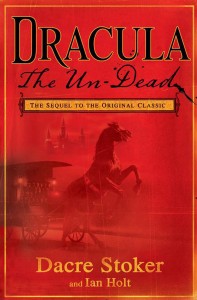
RavMon: Have you ever been intimidated working in the shadow of such a legendary relative?
DS: I’d be lying if I said I wasn’t intimidated trying to fill Bram’s shoes. His product is world famous and the name brings with it a responsibility to do something properly, do it well and be fairly true to Bram’s original work. Because so much time has passed and so many other people have left their mark on the story by twisting ideas and creating their own mythos, I feel that I can do that as well and not be overly criticized for doing something a little different. Obviously, I will admit, it opens some doors being the relative of Bram as well. You don’t have to go through the typical process with publishers and such and you got to use that to your advantage when you can and endure the pit falls when they inevitably come.
RavMon: You are currently working on a really interesting project that should catch the attention of horror travelers the world over. Can you tell us a little about that?
DS: It’s pretty cool, actually. I’m now working on a guide book, based mostly in Romania but also Ireland and England. Ireland places where Bram was brought up and, in my opinion, was inspired to write Dracula, and tracing all the places where Stoker placed his novel, both in England and Romania. We’ll also be pointing out the real places in Romania where the real Vlad Dracula lived and defended castles and impaled people, where he was married and all that. It’s a little fiction and a little nonfiction with a lot of photography and that will probably all take about a year and a half to complete, so that’s what I’m working on right now.
It was an absolute pleasure chatting with Mr. Stoker and I highly recommend checking out www.bramstokerestate.com as well as looking up Dacre on Facebook!


